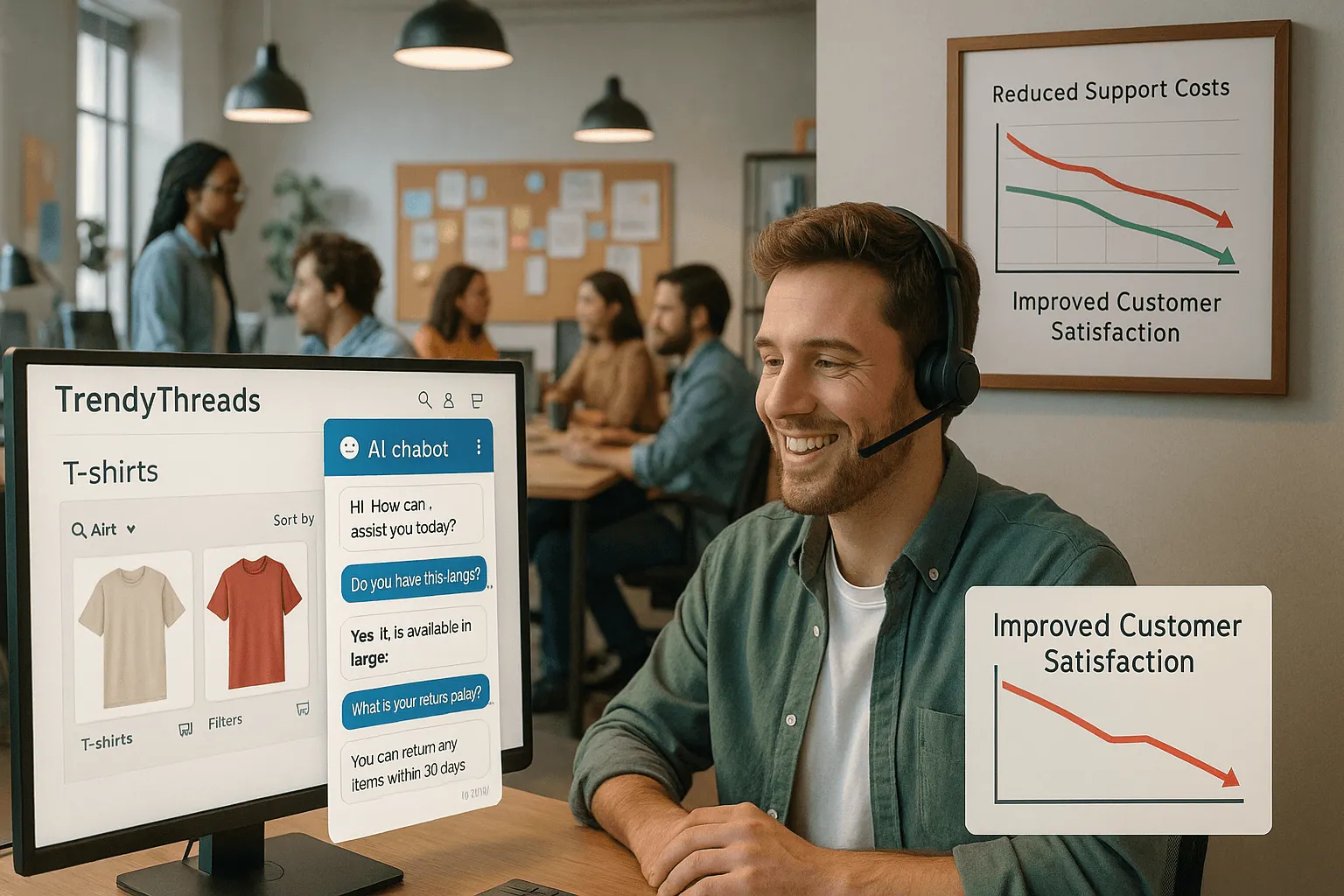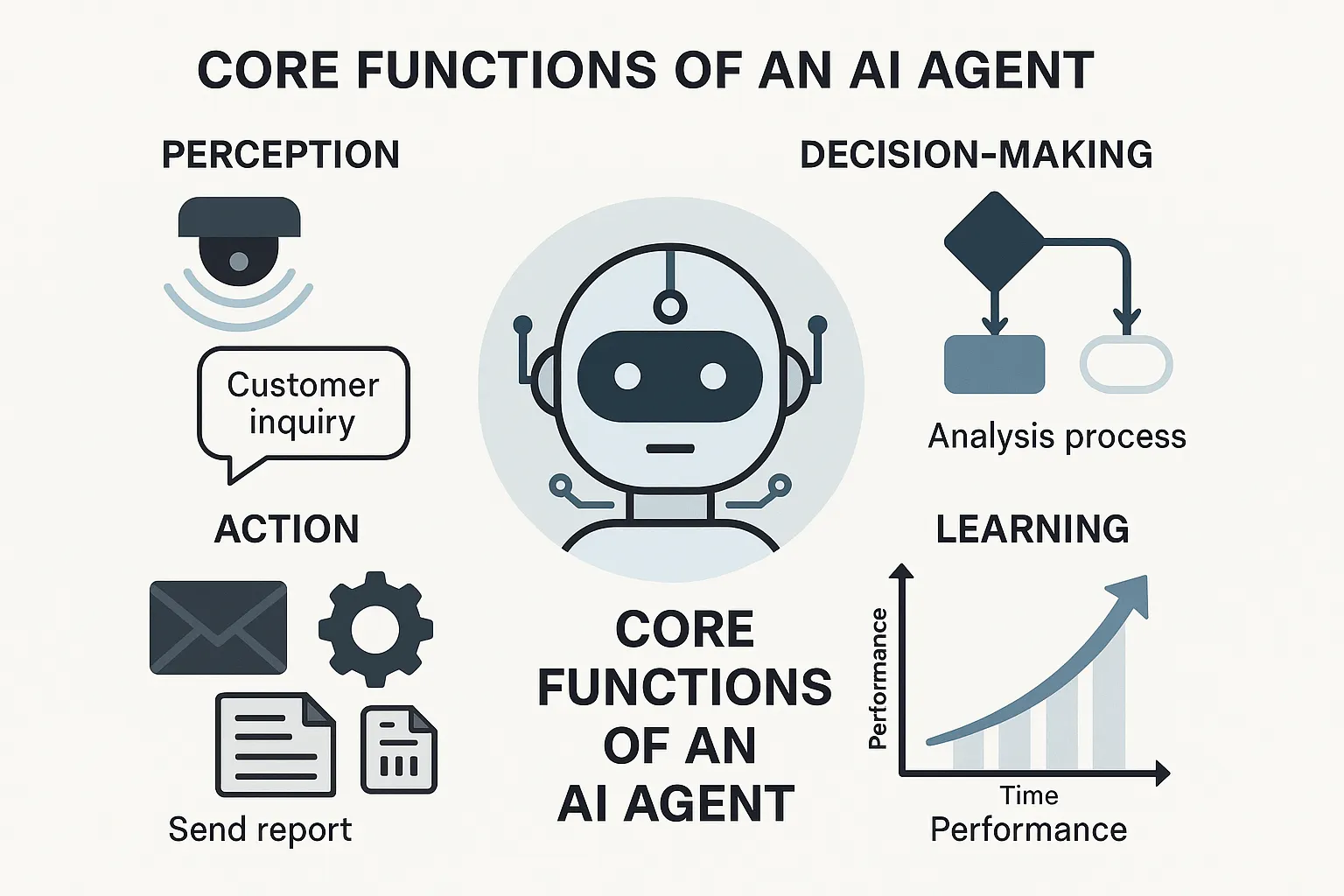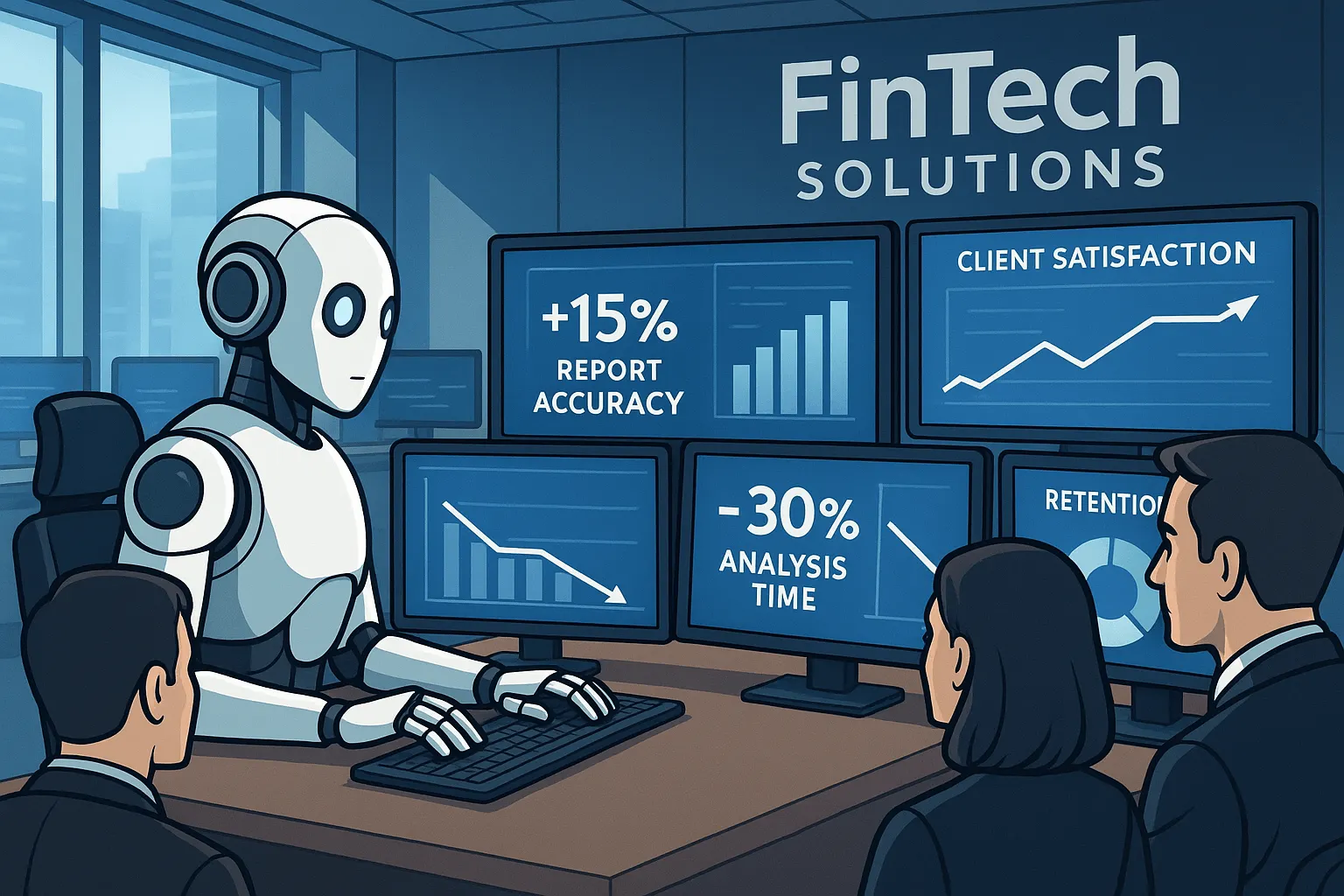The Great Divide: Will AI Agents Widen the Gap Between Big and Small Business? 🤖

Imagine a world where your business runs smoother than ever before. Customer service is lightning-fast, marketing campaigns are laser-focused, and operations hum like a well-oiled machine. Sounds amazing, right? That's the promise of AI agents. But what if this promise comes with a catch? What if only big businesses can afford to unlock this potential, leaving small businesses struggling to keep up? That's the question we're diving into today. Will AI agents create an even wider gap between the giants and the startups, or can small businesses leverage this technology to level the playing field? Let's explore!
Key Takeaways:
- AI agents offer significant advantages for businesses, including improved efficiency and personalized customer experiences. 🚀
- The high cost and complexity of implementing AI agents could disproportionately benefit large corporations, potentially widening the gap with small businesses. 💰
- Small businesses can leverage affordable, specialized AI solutions and strategic partnerships to overcome these challenges. 🤝
- Adapting to the changing landscape requires understanding both the opportunities and the risks associated with AI adoption. ⚠️
- Early adoption and continuous learning are crucial for small businesses to remain competitive in the age of AI. 🧠
What are AI Agents and Why Should You Care? 🤔
AI agents are essentially smart software programs designed to automate tasks, make decisions, and interact with the world around them. Think of them as digital employees that never sleep, always learn, and can handle a wide range of responsibilities. They use machine learning, natural language processing (NLP), and other AI techniques to understand context, adapt to changing situations, and achieve specific goals.
Why should you care? Because AI agents can revolutionize how your business operates. Here are just a few examples:
- Customer Service: AI-powered chatbots can provide instant support, answer frequently asked questions, and resolve customer issues 24/7.
- Marketing: AI agents can analyze customer data to personalize marketing campaigns, optimize ad spending, and predict customer behavior.
- Sales: AI assistants can qualify leads, schedule appointments, and even assist sales representatives during calls.
- Operations: AI agents can automate repetitive tasks, optimize supply chains, and predict equipment failures.
- Data Analysis: AI can process huge volumes of data to identify trends, patterns, and insights that would be impossible for humans to find.
"AI is not just about automating tasks; it's about augmenting human capabilities and creating entirely new possibilities." - Andrew Ng, Co-founder of Coursera
The Promise of AI: Leveling the Playing Field? ⚖️

The initial promise of AI was that it would democratize technology, making advanced tools accessible to everyone, regardless of size or budget. In some ways, this has been true. Cloud-based AI services have lowered the barrier to entry, allowing small businesses to access powerful AI capabilities without investing in expensive infrastructure.
For example, a small e-commerce business can use AI-powered tools to:
- Personalize product recommendations: Suggesting relevant items to customers based on their browsing history and purchase behavior.
- Automate email marketing: Sending targeted emails to customers based on their interests and preferences.
- Detect fraudulent transactions: Identifying and preventing fraudulent orders in real-time.
These capabilities were once only available to large corporations with deep pockets. Now, they're within reach for even the smallest businesses.
The Reality Check: A Growing Divide? 💔
Despite the potential for democratization, there's a growing concern that AI agents could actually widen the gap between big and small businesses. Here's why:
- Cost: Developing and implementing custom AI solutions can be expensive. Large corporations have the resources to hire data scientists, engineers, and other AI specialists. Small businesses often lack the budget for this type of investment.
- Complexity: AI is complex. It requires specialized knowledge and skills to build, train, and maintain AI models. Small businesses may lack the expertise to effectively use AI tools.
- Data: AI algorithms need data to learn. Large corporations have access to vast amounts of data, which they can use to train more accurate and effective AI models. Small businesses may struggle to gather enough data to make AI worthwhile.
- Talent: The demand for AI talent is high, and the supply is limited. Large corporations can offer higher salaries and better benefits to attract top AI professionals. Small businesses may find it difficult to compete for talent.
- Infrastructure: Running AI models requires significant computing power. Large corporations can afford to invest in powerful servers and cloud infrastructure. Small businesses may struggle to afford the necessary resources.
Factor Big Business Small Business Cost Higher budget for custom solutions Limited budget, relies on affordable tools Complexity In-house AI experts Limited expertise, needs easy-to-use tools Data Large datasets for training AI models Smaller datasets, potential data scarcity Talent Attracts top AI talent with high salaries Struggles to compete for top talent Infrastructure Invests in powerful computing infrastructure Relies on cloud services, budget constraints This creates a vicious cycle: big businesses invest in AI, become more efficient and competitive, and further widen the gap with small businesses.
Case Studies: AI Success Stories (and Failures)
Let's look at some real-world examples to illustrate this point.
Success Story: Starbucks
Starbucks uses AI to personalize the customer experience, optimize operations, and drive sales. Their AI-powered app learns customer preferences and provides personalized recommendations. They also use AI to optimize staffing levels, predict demand, and manage inventory. This has resulted in increased customer satisfaction and improved profitability.
Failure Story: A Small Retailer
A small clothing boutique tried to implement an AI-powered chatbot to handle customer inquiries. However, they lacked the expertise to train the chatbot properly, and it often provided inaccurate or irrelevant information. Customers became frustrated, and the boutique eventually had to abandon the chatbot project. This experience not only wasted money but also damaged the boutique's reputation.
The Takeaway: AI can be incredibly powerful, but it's not a magic bullet. It requires careful planning, execution, and ongoing maintenance.
How Small Businesses Can Compete: Strategies for Success 💪

Despite the challenges, small businesses can still leverage AI to compete with larger companies. Here are some strategies for success:
- Focus on Specific Use Cases: Don't try to boil the ocean. Identify specific areas where AI can have the biggest impact on your business. For example, focus on automating customer service or personalizing marketing campaigns.
- Leverage Affordable AI Solutions: There are many affordable AI tools and platforms available that are specifically designed for small businesses. Look for solutions that are easy to use and require minimal technical expertise.
- Partner with AI Experts: If you lack in-house AI expertise, consider partnering with an AI consulting firm or freelancer. They can help you develop and implement AI solutions that meet your specific needs.
- Focus on Data Quality: Garbage in, garbage out. Make sure you're collecting accurate and reliable data. Clean and organize your data before using it to train AI models.
- Start Small and Iterate: Don't try to implement a complex AI solution all at once. Start with a small pilot project and gradually expand your AI capabilities as you gain experience.
- Embrace Continuous Learning: AI is constantly evolving. Stay up-to-date on the latest AI trends and technologies. Invest in training for your employees to help them develop AI skills.
- Emphasize the Human Touch: AI can automate many tasks, but it can't replace the human touch. Focus on using AI to augment human capabilities, not replace them entirely.
"Small businesses can thrive in the age of AI by focusing on their unique strengths, such as personalized customer service and community engagement." - Carol Roth, Entrepreneur and Author
The Future of AI and Small Business: Trends to Watch 👀
The future of AI and small business is full of exciting possibilities. Here are some trends to watch:
- No-Code AI: No-code AI platforms are making it easier for non-technical users to build and deploy AI applications. This will lower the barrier to entry for small businesses.
- Edge AI: Edge AI allows AI models to run on devices at the edge of the network, rather than in the cloud. This can improve performance, reduce latency, and enhance privacy.
- AI-Powered Automation: AI is being used to automate an increasingly wide range of tasks, from accounting to legal research. This will free up small business owners to focus on more strategic activities.
- Personalized AI: AI is becoming more personalized, allowing businesses to tailor AI solutions to the specific needs of individual customers.
- Ethical AI: As AI becomes more prevalent, there's a growing focus on ethical AI. Businesses will need to ensure that their AI systems are fair, transparent, and accountable.
Conclusion: Embracing the AI Revolution 🚀

The rise of AI agents presents both opportunities and challenges for small businesses. While the potential for increased efficiency, personalized customer experiences, and improved decision-making is undeniable, the high cost and complexity of AI implementation could widen the gap between big and small businesses.
However, by focusing on specific use cases, leveraging affordable AI solutions, partnering with AI experts, and embracing continuous learning, small businesses can level the playing field and compete effectively in the age of AI. The key is to be proactive, adaptable, and willing to experiment with new technologies. The future belongs to those who embrace the AI revolution and use it to create value for their customers and their businesses. Don't be left behind! ```
